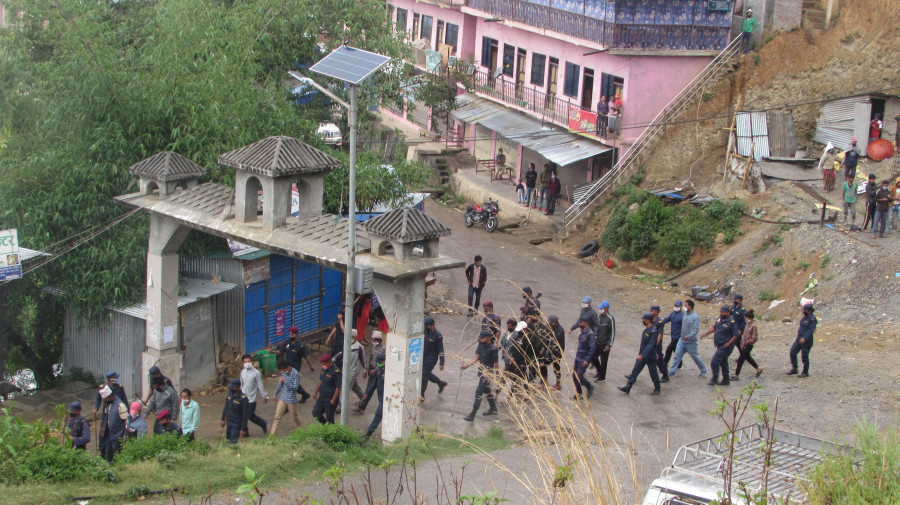Editorial
Blood on the hills
Though insufficient, the parliamentary probe committee's recommendations on the Soti killings must be implemented to provide justice to the victims.
A parliamentary committee formed to probe the killings of six youths in Soti village of Chaurjahari Municipality in Rukum (West) has submitted its report to Speaker Agni Sapkota. On June 8, the House of Representatives formed the nine-member probe committee, led by Nepal Communist Party lawmaker Devendra Paudel, following pressure from opposition parties and activists. The report has rightly called the mass killing was a crime against humanity. It also said the crime was premeditated and organised by the family of a 17-year-old girl that was unhappy about their daughter's planning to marry a man from a so-called lower caste.
The report indicted the local police for failing to fulfil their duty to protect the victims even though they were aware that the incident was underway. It pointed out how the police failed to accurately report the crime scene and the locations where the bodies of the victims had been found and also to record statements of those who had recovered the bodies. The police, as per the report, took the injured under control instead of the attackers, which points to a serious flaw in the investigation process. The report’s findings, which expose the flawed criminal investigation system, should serve as a wake-up call for the police force to train its men and women in uniform more rigorously and instill in them a sense of duty and responsibility.
Further, the report cast doubt on the authenticity of the autopsy report as the doctor who carried it out had a conflict of interest. It also stated that the laws for putting an end to caste discrimination are not sufficient and that the government has not implemented its commitments to the international community to stop caste-based discrimination. But the report failed to acknowledge growing calls among Dalit activists to declare the victims martyrs of caste killings.
The report made 24 recommendations including the need to conduct further investigations into the incident owing to flaws in the police enquiry. It also recommended a provision of compensation, education, health, livelihood and employment for the dependents of the victims, and punishment in the incidents of caste discrimination based on zero tolerance policy. However, the recommendations failed to explain whether providing compensation to the victims helps stop crimes against Dalits in the future. It also failed to recommend structural changes that would be more effective for the upliftment of Dalits.
What’s more, some of the recommendations are just a carbon copy of the recommendations made in previous probe reports. They are as vague and ritualistic as making the National Dalit Commission more effective, appointing officials in the commission, effectively implementing the constitution, and ensuring proportional representation of Dalits. However, the recommendations still pave the way for providing some sense of justice to the victims. A failure to implement them effectively will be a blot on the credibility of parliamentary committees in the future.
The probe report has come at a time when Parliament has been prorogued. This means that it will not be debated as widely as it should be. In this context, the suspicion raised by The Kathmandu Post in its June 8 editorial that the report may be condemned to gather dust in government offices is a real possibility. The government, thus, must be pressured into publicising the report widely and implementing the recommendations. The Post reiterates its call on rights activists, civil society members and the public to keep a close vigil to ensure that the recommendations are implemented effectively and the victims get justice.



 14.24°C Kathmandu
14.24°C Kathmandu














